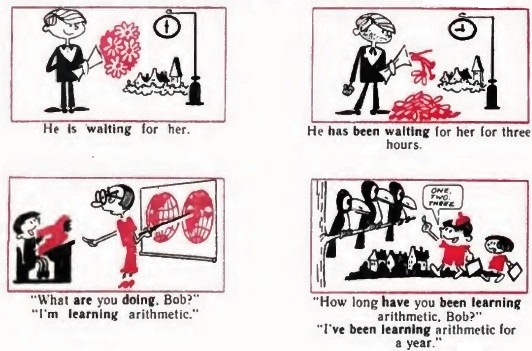- Учителю
- Music in our life
Music in our life
1. Приветствие (раскрытие темы урока):
-
t: Good morning boys and girls, glad to see you. Take your seat's please.
-
p: Good morning teacher.
-
t: What date is it today?
-
p: Today is the 28th of October.
-
t: What day is it today?
-
p: today is Friday.
-
t: look at the window and tell me please What whether is it today?
-
p: It is...
-
t: Oh, what is it? Are you listening to? Is it a music?
-
p: Yes, we are. It is a music.
-
t: Do you like listening to music?
-
p: Yes, we are.
-
t: What is your favorite singer?
-
p: My favorite singer is...
-
t: Where do you listen to music?
-
p: I listen to music ...
-
t: Look at the picture, what are they doing?
-
p: They are listening to music, too.
-
t: Can you live without music?
-
p: No, we can`t.
-
t: And how do you think, what topic of our lesson is it today?
-
p: It is Music in our life.
2. Спросить цели и задачи урока (подвести к ним и выявить):
Will we remember words about kind of music and emotions?
Are we going to practice our listening?
Are we going to read? Are we going to talk?
Are we going to learn new words and rules?
Absolutely right! Today we'll revise everything.
3. Фонетическая разминка ( в презентации картинки с видами музыки и картинки с эмоциями, опираясь на картинки вспоминаем лексику; после выполняем задание в рабочем листе и на доске, соотносим слова музыку и эмоции + включаю музыку):
-
t: Let`s remember the words from our last lesson. Look at the screen and say. What kind of music do you know? pop, opera, folk, classical, rock, jazz, country, techno, rap.
-
p: pop, opera, folk, classical, rock, jazz, country, techno, rap.
-
t: What emotions can you feel when are you listening to this kind of music? relaxing- спокойный, sad - грустный, boring - скучный, cheerful - весёлый, loud - громкий, calm - спокойный, fast - быстрый, energetic - энергичный, fantastic - фантастический.
-
p: relaxing, sad, boring, cheerful, loud, calm, fast, energetic, fantastic.
-
t: Good. Let`s try say some sentences about your emotions when you listening to different kind of music? For example: When I listening to classical music I feel calm or When I listening to rock I feel energetic, what about you?
-
p: When I listening to ... I feel ...
4. Аудирование, работа с видео, выполняем задание, читаем и переводим ( перед видео рассказываю задание, задание в рабочем листе, прослушать текст и выбрать что правда или ложь в тексте, после прочитать и перевести, сказать своё мнение ( один ученик выходить к доске и берёт интервью, другие отвечают, помощь на доске и в рабочем листе)).
-
t: Look and listening video and specific information's about music. Match true or fouls, read and translate.
-
p: match(отмечают).
-
t: check up, then read and translate.
-
p: read and translate.
-
t: Good. Now, imagine that you a famous journalist and you should take the interview about music. Take a microphone and ask questions! Look at screen and you see questions and answers which can help you. I give you one minute than you can prepare your questions and answers. Who is ready and brave? Don`t be afraid.
-
p: ask and answer.
5. Повторение старой и введение новой лексики в урок (работа с постером). Закрепление лексики у доски и отработка конструкции can/can not. Играем угадай мелодию.
-
t: Oh, you are not bad. I see, that you know the words about kind of music and emotions, but do you know the words about musical instruments?
-
p: drums, guitar, piano...
-
t: Good. And now we`ll learn new words: musical instruments and their names. Look at screen and all together repeat after me.
-
p: Children are repeating.
-
guitar [gɪˈtɑ] гитара,
-
drums [drʌmz] барабаны,
-
piano [pɪˈænəʊ</<font face="Times New Roman, serif">] фортепиано,
-
flute [fluːt] флейта,
-
keyboards [kiːbɔːdz] клавишные,
-
bagpipes [bægpaɪps] волынка,
-
violin [vaɪəˈlɪn] скрипка,
-
saxophone [ˈsæksəfəʊn] саксофон,
-
banjo [bænʤəʊ] банджо.
-
t: Let`s play : "Guess melodies". Look at the black board. You see picture and musical instruments` name. First listen to music and will guess: what musical instrument is playing? Then attach the card by right picture and answer: What are they doing in the pictures? (привожу пример). Who is ready? Please you?
-
p: Выходят к доске слушают музыку и прикрепляют карточку с музыкальным инструментом к соответствующей картинки, говорят что изображено на картинке при помощи Present progressive (they are playing drums).
6. Отработка настоящего совершённого времени.
-
t: Good. Anybody knows how we say if we play a long time and what time we must use?
-
p: Yes, present perfect progressive
-
t: Когда мы хотим сказать о действии, которое началось в прошлом и до сих продолжается в настоящем, то мы употребляем Present Perfect Progressive. Форма образования have/has been + Ving.

-
С какого периода времени они играют. преобразовывают предложения по картинкам и в рабочем листе. Сделать в конце группу (импровизация).
7. Подведение итогов (рефлексия: рабочий лист)
Our lesson is coming to an end. Did you enjoy it? I hope you did. You were very active and hard working and get the following marks:….
8. Домашнее задание SB p.40 ex.7